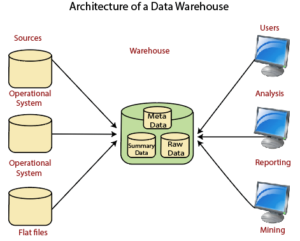Data integration refers to the process of combining data from multiple sources into a unified and consistent format. Imagine you have different filing cabinets across your company, each holding information relevant to a specific department. Data integration is like bringing all that information togeRead more
Data integration refers to the process of combining data from multiple sources into a unified and consistent format. Imagine you have different filing cabinets across your company, each holding information relevant to a specific department. Data integration is like bringing all that information together into one central, organized filing system.
Here’s why data integration is crucial for data analysis:
- Unified View: It provides a complete picture by merging data from various sources. This allows analysts to see connections and trends that wouldn’t be evident in isolated datasets.
- Improved Data Quality: By combining data, inconsistencies and errors become more apparent. Data integration helps clean and standardize the data, leading to more reliable results in your analysis.
- Enhanced Insights: With a broader range of data, analysts can uncover deeper insights that would be missed by analyzing individual datasets. This can lead to better decision-making across the organization.
- Streamlined Analysis: Data integration eliminates the need to switch between different data sources and manually manipulate data. This saves time and allows analysts to focus on the actual analysis and interpretation of the data.
In essence, data integration acts as the foundation for strong data analysis. It ensures the data you’re working with is comprehensive, accurate, and ready to reveal valuable insights.


A Data Warehouse is crucial for any business as it provides a centralized repository for storing, managing, and analyzing large volumes of data from various sources. This centralization allows businesses to consolidate data from different departments, systems, and applications, ensuring consistencyRead more
A Data Warehouse is crucial for any business as it provides a centralized repository for storing, managing, and analyzing large volumes of data from various sources. This centralization allows businesses to consolidate data from different departments, systems, and applications, ensuring consistency and reliability. By having a single source of truth, businesses can make informed decisions based on comprehensive and accurate data. Data warehouses support historical data analysis, enabling businesses to identify trends, patterns, and insights that drive strategic planning and operational improvements.
Key benefits of data warehouses include:
For example, a retail company might use a data warehouse to consolidate sales data from various stores, online platforms, and customer databases. This allows the company to analyze overall sales performance, identify trends, and forecast demand more accurately. By leveraging the data warehouse, the company can optimize inventory management, tailor marketing strategies, and improve customer service, ultimately driving business growth and profitability.
In conclusion, a data warehouse is essential for businesses to manage and utilize their data effectively. It provides a robust infrastructure for data consolidation, quality assurance, and efficient analysis, leading to better decision-making and strategic planning. The ability to access and analyze comprehensive data empowers businesses to stay competitive and responsive in a data-driven world.
See less